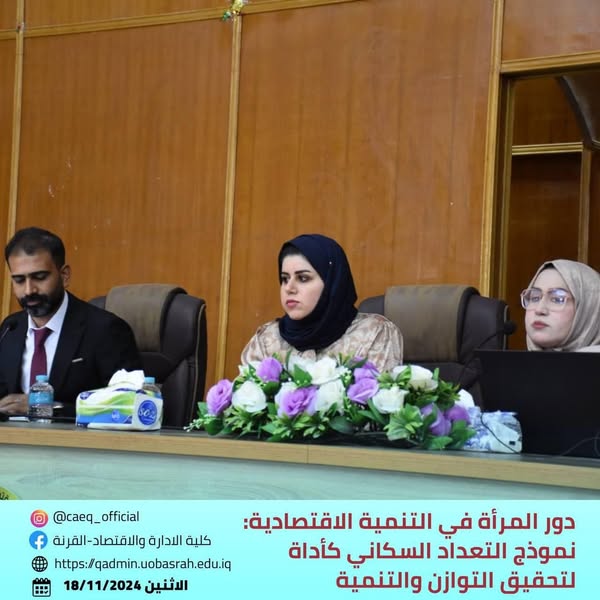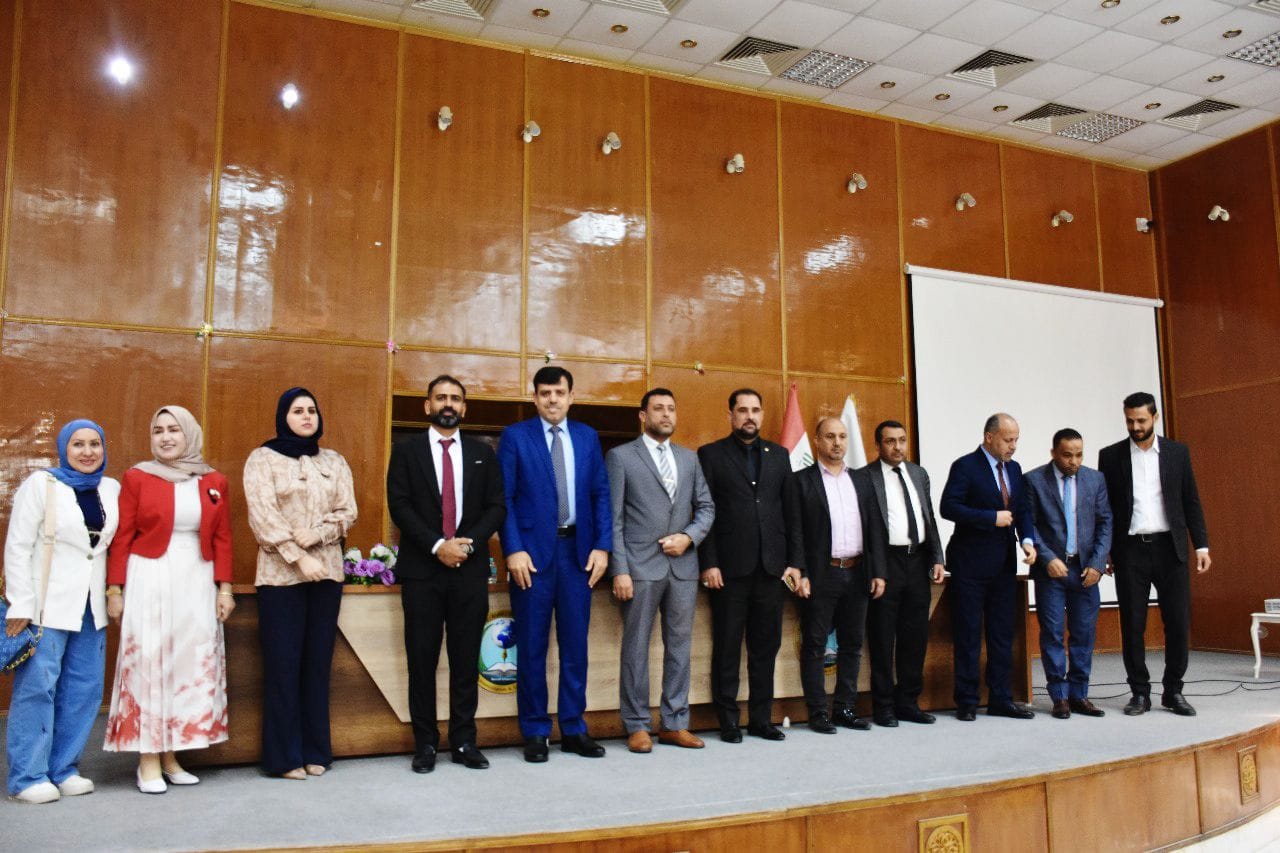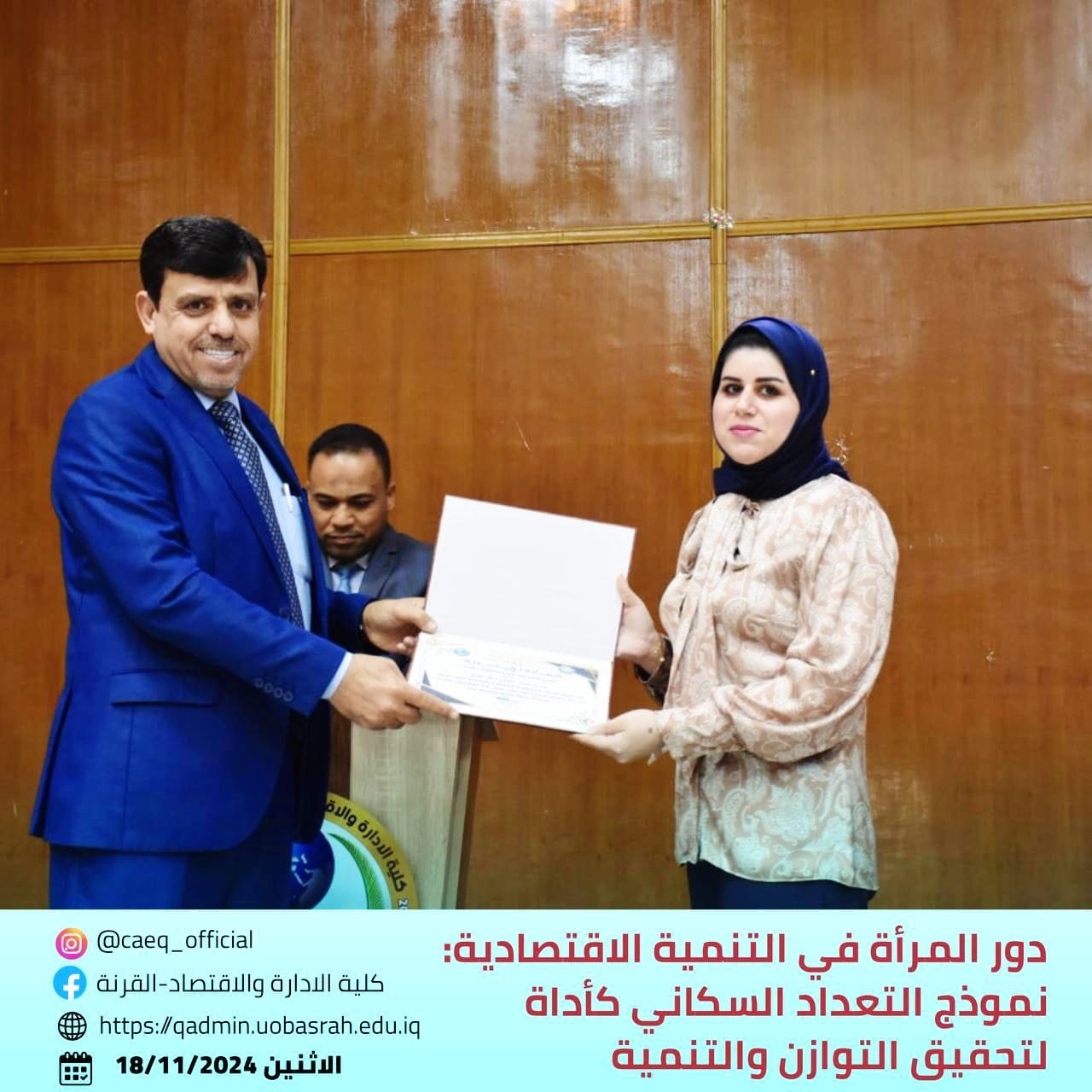A LECTURER AT THE UNIVERSITY OF BASRAH PARTICIPATES IN A SEMINAR ENTITLED "THE ROLE OF WOMEN IN ECONOMIC DEVELOPMENT: THE POPULATION CENSUS MODEL AS A TOOL FOR ACHIEVING BALANCE AND DEVELOPMENT"
Assist. L. Iman Raad Fattah, a lecturer in the Department of Economics at our college at the University of Basrah, participated in a seminar entitled “The Role of Women in Economic Development: The Population Census Model as a Tool for Achieving Balance and Development,” which was held at the College of Administration and Economics/Al-Qurna.
The seminar aimed to highlight the importance of the population census as a strategic tool to enhance the role of women in economic development, with a focus on achieving balance and sustainable development in society.
The seminar included explaining four main axes, the first of which was women's economic participation in the population census and the impact of women's participation in economic development. The second axis included the role of women in the population census, explaining and analyzing the mechanism of the population census form and the role of the population census in formulating economic policies that support women. The third axis addressed the population census in Iraq between truth and ambiguity to clarify the economic importance of the population census and review local and international experiences in using the population census to support women's issues. Finally, the fourth axis addressed how women's empowerment contributes to the population census of Iraq 2024 and applying these axes in the context of the Iraqi population census and strengthening development policies.
In conclusion, the participants in the seminar recommended the possibility of relying on these axes to understand the direct and indirect impact of women's economic participation in Iraq, where societies suffer from economic challenges and population pressures. Increasing women's participation can contribute to improving the general situation of the population census, through its positive effects on the well-being of families and reducing poverty rates. It is also possible to study examples of other countries that have implemented women's empowerment policies, and see how these policies have contributed to achieving population stability and improving the quality of life for society as a whole.



.jpeg)



